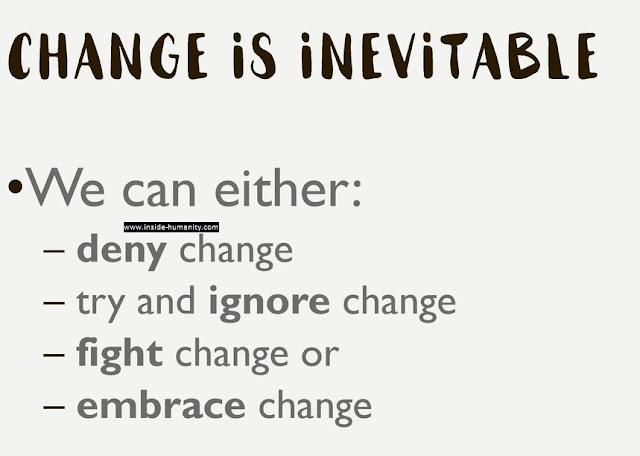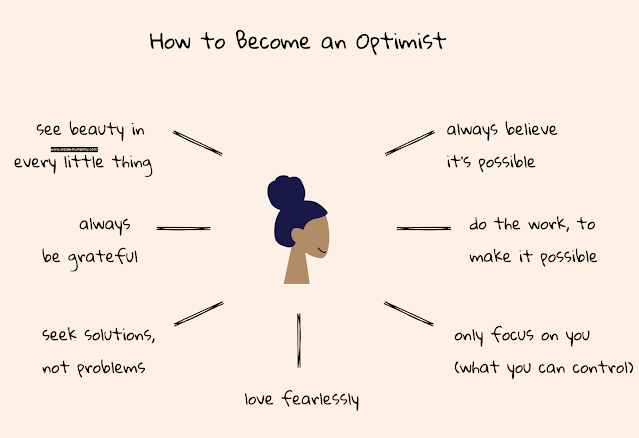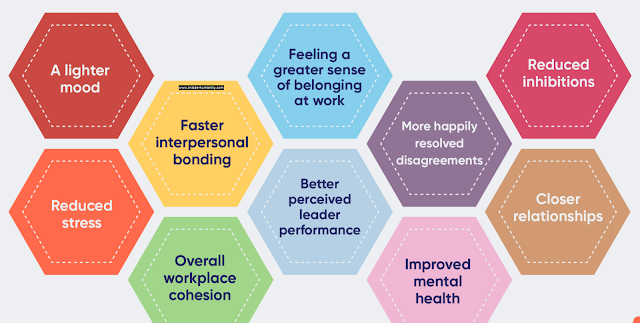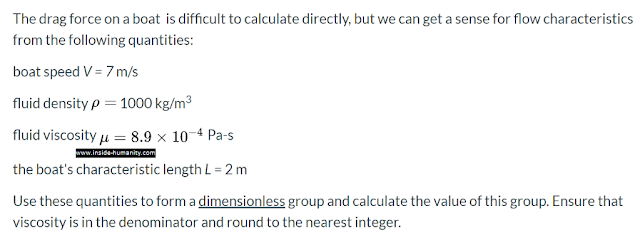Introduction
Happiness is a subjective and elusive concept that can mean different things to different people. Despite this, researchers have identified certain strategies that can help individuals increase their overall sense of well-being and satisfaction with life.
Examine Your Thoughts and Beliefs
Negative thoughts and beliefs can lead to feelings of unhappiness. One strategy for increasing happiness is to examine these thoughts and beliefs, and challenge any that are not accurate or helpful. Mindfulness practices, such as meditation, can also be helpful in this process.
Practice Gratitude
Another strategy for increasing happiness is to practice gratitude. This can involve keeping a gratitude journal, where you write down things you are grateful for each day, or expressing gratitude to others.
Research has shown that individuals who practice gratitude regularly report higher levels of well-being. Strong social connections are associated with higher levels of happiness. This can involve building new relationships, strengthening existing ones, or simply spending more time with people you care about. Volunteering and other forms of community engagement can also be a great way to build social connections.
Take Care of Your Physical and Mental Health
Taking care of your physical and mental health can also contribute to increased happiness. This can include regular exercise, getting enough sleep, eating a healthy diet, and managing stress. Additionally, seeking professional help if you are struggling with mental health issues can be beneficial.
Having a sense of meaning and purpose in life can also contribute to happiness. This can involve pursuing a passion or hobby, setting goals, or working on a project or task that is meaningful to you. Engaging in activities that align with your values and beliefs can also help to increase a sense of purpose.
Set Realistic Expectations
Unrealistic expectations can lead to disappointment and dissatisfaction, which can negatively impact happiness.
Setting realistic expectations for yourself and others can help to prevent these feelings. This can involve breaking down larger goals into smaller, more manageable tasks, and being honest with yourself about what is truly achievable. Finding a balance between work and leisure, as well as other areas of life, can also contribute to happiness. This can involve setting boundaries and making time for activities that bring you pleasure and relaxation.
It can also involve learning to say "no" to commitments or activities that do not align with your priorities. Self-care is an essential component of overall well-being and happiness. This can include activities such as regular exercise, healthy eating, getting enough sleep, and engaging in activities that bring you pleasure. It can also involve setting aside time for yourself to relax and recharge.
Challenge Yourself
Engaging in activities that challenge and stretch you can also contribute to happiness. This can include learning a new skill, taking on a new responsibility, or trying something that scares you.
When you accomplish something you didn't think possible, it can boost your self-esteem and self-confidence.
Being too focused on the past or the future can lead to feelings of anxiety and dissatisfaction. All things being equal, attempt to zero in on the current second. Mindfulness practices such as meditation and yoga can help to improve focus and concentration on the present moment.
Practice Forgiveness
Holding on to grudges and resentments can lead to feelings of anger, bitterness and unhappiness. Practicing forgiveness, whether it is towards yourself or others, can help to release these negative feelings and increase feelings of peace and contentment. This can involve letting go of past hurts and learning to see things from the other person's perspective.
Embrace Change
Change can be difficult and uncomfortable, but it can also lead to growth and new opportunities. Embracing change and being open to new experiences can help to increase feelings of happiness and fulfillment. This can involve learning to let go of things that are no longer serving you and being open to new possibilities.
Cultivate Optimism
Hopefulness is the conviction that beneficial things will occur from now on. Cultivating optimism can help to increase feelings of hope and motivation. This can involve reframing negative thoughts and focusing on the positive aspects of a situation. Being kind to yourself is an important aspect of self-care and well-being. This can involve treating yourself with the same compassion and understanding that you would offer to a friend. It can also involve being patient and forgiving with yourself when things don't go as planned.
Finding inspiration and motivation can also contribute to happiness. This can involve seeking out role models, reading books or articles, or listening to music that resonates with you.
It can also involve taking time to appreciate the beauty of nature or art.
Find Humor
Laughter and humor can be great mood boosters and help you to cope with stress and challenges.
Find humor in everyday life, whether it's watching a comedy, reading a funny book, or spending time with friends who make you laugh.
Incorporating humor and laughter into your life can help to boost your mood and reduce feelings of stress and anxiety. Having a support system in place can provide emotional and practical support during difficult times. This can involve building and maintaining relationships with friends, family, and loved ones.
Joining a support group or connecting with others who have similar experiences can also be beneficial. Giving back to others, whether through volunteering, making a donation, or simply helping a friend in need, can be a great way to increase feelings of happiness and fulfillment. Helping other people can likewise give a feeling of motivation and importance.
Practice Self-Acceptance
Accepting yourself and your flaws can be a difficult but important step towards happiness. This can involve learning to let go of perfectionism and embracing your unique qualities and strengths.
It can also involve being kind to yourself and treating yourself with compassion. Living in the moment, also known as mindfulness, can help to increase feelings of happiness and satisfaction.
This can involve being fully present and engaged in the current moment, whether it's during a conversation, a walk in nature, or a task you are working on. Mindfulness practices such as meditation can also help to cultivate this mindset. Setting boundaries can help to protect your time and energy, and increase feelings of control and empowerment.
This can involve saying "no" to commitments or requests that do not align with your values or priorities. It can also involve setting limits on the amount of time and energy you spend on certain activities or relationships.
Find a Sense of Flow
Engaging in activities that bring a sense of flow, or being fully absorbed and engaged in the task at hand, can be a great way to increase happiness and fulfillment. This can involve finding activities that align with your interests and skills, and that provide a sense of challenge and progress. Examples include hobbies, sports, and creative pursuits. Positive self-talk can help to boost your mood and increase feelings of self-worth. This can involve replacing negative thoughts and self-criticism with positive affirmations and encouragement. It can also involve being mindful of the language you use when talking to yourself, and choosing words that are kind and supportive.
Choose Your Company Wisely
The people you surround yourself with can have a big impact on your mood and well-being. It's important to choose your company wisely, and to spend time with people who are positive and supportive. It's also important to set healthy boundaries with people who are negative or draining.
The environment you spend time in can also have an impact on your mood and well-being. Creating a positive environment can involve decluttering and organizing your living space, adding plants or other natural elements, and incorporating colors and textures that you find soothing. It can also involve being mindful of the media and information you consume, and choosing sources that are uplifting and positive.
Having a sense of control over one's life can lead to increased feelings of happiness and well-being. This can involve setting and achieving goals, making plans, and taking steps to achieve them.
It can also involve learning to let go of things that are out of your control and focusing on what you can change.
A development mentality is the conviction that capacities and knowledge can be created through exertion and learning. Adopting a growth mindset can help to increase feelings of self-efficacy and motivation. This can involve viewing challenges as opportunities for growth and learning, rather than as failures. Being open to new experiences can lead to increased feelings of excitement and fulfillment.
This can involve trying new things, stepping out of your comfort zone, and being open to new opportunities and possibilities.
It can also involve being open to different perspectives and ways of thinking.
Find Ways to Give Back
Giving back to others, whether through volunteering, making a donation, or simply helping a friend in need, can be a great way to increase feelings of happiness and fulfillment. Helping other people can likewise give a feeling of inspiration and importance. Giving back to your community can also have a positive impact on the world around you.
Prioritizing self-care is essential for overall well-being and happiness. This can involve making time for activities that bring you pleasure and relaxation, such as exercise, healthy eating, getting enough sleep, and taking time for yourself. It can also involve setting boundaries and making time for self-care activities.
Conclusion
Happiness is a complex and multi-faceted concept, but there are many strategies that individuals can use to increase their overall well-being and satisfaction with life.
These strategies can include examining and challenging negative thoughts and beliefs, practicing gratitude, nurturing social connections, taking care of physical and mental health, finding meaning and purpose, setting realistic expectations, finding balance, practicing self-care, challenging yourself, focusing on the present moment, practicing forgiveness, embracing change, cultivating optimism, being kind to yourself, finding inspiration, finding humor, creating a support system, giving back, practicing self-acceptance, living in the moment, setting boundaries, finding a sense of flow, practicing positive self-talk, choosing your company wisely, creating a positive environment, finding a sense of control, developing a growth mindset, being open to new experiences, finding ways to give back and prioritizing self-care.
Remember that there is no one-size-fits-all solution to happiness and it's important to experiment and find what works best for you. Consult with a mental health professional or counselor if you are seeking specific advice or guidance on how to improve your well-being.


















0 Comments
Thank you. We'll reply you shortly.